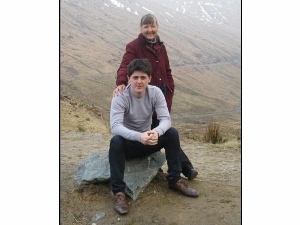

<p><img class=" alignright size-full wp-image-1404" src="http://schoolnewsnz.fastrackdev.com/wp-content/uploads/2015/03/SND14-wk1-School_Journal_300x225.jpg" alt="SND14-wk1-School Journal 300x225" style="margin: 5px; float: right;" width="300" height="225" />A research project into the New Zealand School Journal&#8217;s portrayal of the ANZAC legend in World War I almost didn&#8217;t get started, but when it did, the academic behind it uncovered a personal journey into her family history.</p>
<p> <!--more--> </p>
<p>Associate Professor Carol Mutch, head of Critical Studies in Education at the University of Auckland&#8217;s Faculty of Education, started the project more than two years ago with Christchurch historian Sarah Christie.</p>
<p>The two researchers decided to use the School Journal as their main source on how educational materials shaped young people&#8217;s thinking about the ANZACs. The School Journal has been part of New Zealand classrooms since 1907 and, during WWI it portrayed the war as a glorious campaign by strong masculine heroes, when they were ordinary men facing an impossible task.</p>
<p>By coincidence, during the research, one of Carol&#8217;s cousins made an on-line addition to the family tree that described how a great uncle she had never heard of, Samuel Gurden, was killed in action at Gallipoli in 1915.</p>
<p>In another twist to the project, Carol will be able to pay her respects to him when she accompanies her son, Nicholas, who received two attendance passes in last year&#8217;s ballot to the 100th Anzac Day commemorations at Gallipoli next month.⨠She leaves on April 10 and is full of nervous anticipation about the trip.</p>
<p>&#8220;I don&#8217;t know what it will be like. I do know it will be very emotional,&#8221; she says. &#8220;He was a stoker, he was down in the ship when the bomb hit and he was buried at sea.&#8221;</p>
<p>Samuel Gurden entered the Royal Navy in 1908 aged just 22. He was on the HMS Grafton when he was killed in enemy action while on duty in Suvla Bay, Gallipoli. He was just 29 years old.</p>
<p>&#8220;He deserves to have his life celebrated,&#8221; Carol says. &#8220;My son will be 23 when we go. Great uncle Samuel was a bit older than that but still a young man in his 20s when his life was absolutely cut short.&#8221;</p>
<p>For Carol, having an ancestor die in the futile campaign to retain the Gallipoli peninsula from the Turks has made the School Journal research even more relevant to her.</p>
<p>&#8220;I thought, just like any researcher, how can I write about Gallipoli when I&#8217;ve never been there? I can read stories about Chunuk Bair and Brighton Beach and ANZAC Cove, but I don&#8217;t have a sense of them.</p>
<p>&#8220;Now I will have the opportunity to immerse myself in the place and really get a sense of it.&#8221;</p>
<p>The visit to Gallipoli is also significant given that the whole research project was at risk of failing before it had even begun. No sooner had they decided to use the School Journal they discovered that copies printed before 1980 were not available online, and it was difficult to trace physical copies of the journal during WWI. â¨A nationwide search ensued, only for the most complete set of the journals to ironically be found in the Sylvia Ashton-Warner Library on Faculty of Education&#8217;s Epsom campus.</p>
<p>After discovering the journals were too delicate to simply photocopy, they were sent to the university&#8217;s general library on the city campus where a state-of-the-art scanning machine was used to carefully and slowly scan every edition.</p>
<p>So far Carol&#8217;s assistants have scanned the journals and summarised key articles up to the 1940s, while Sarah Christie and a team in Christchurch have worked backwards from the 1980s to make a photocopied record.</p>
<p>The project grew from a study of WWI to include other wars in the last century.⨠Under the themes of courage, resilience, celebration and the anti-war movement the team are creating a data base that it is hoped the public can use as a study aid in the future.</p>

EXCLUSIVE: Teachers used to be paid two to three times more than minimum wage workers,…
After an “overwhelming” vote to reject the latest Government offer, secondary school teachers will begin…
Second-language learning should be compulsory, says a new report from a forum bringing together academics,…
A new entitlement aimed to improve access to learning support coordinators for schools with students…
Educators have raised questions about the Ministry of Education’s new secondary school subjects, set to…
Professional learning and development (PLD) for teachers needs to be higher impact for teachers and…
This website uses cookies.